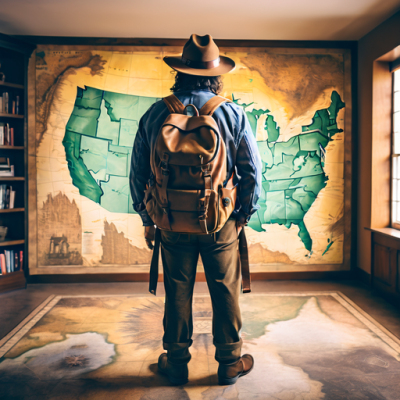
Top 5 States for Living Off-Grid in the USA
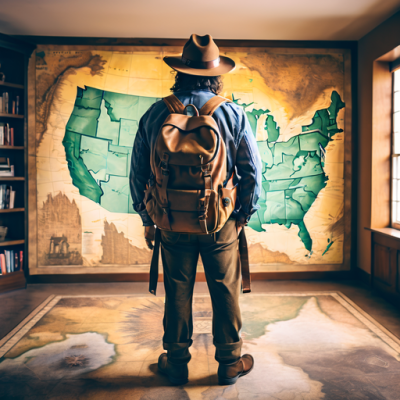 The United States, with its vast and diverse landscapes, offers several states where off-grid living is more accessible and encouraged. Here are the top states that foster an environment conducive to off-grid life.
The United States, with its vast and diverse landscapes, offers several states where off-grid living is more accessible and encouraged. Here are the top states that foster an environment conducive to off-grid life.
Arizona: Sunshine and Freedom
Nestled in the arid Southwest, Arizona boasts abundant sunshine, making it an ideal hub for solar power. Its vast rural areas offer relatively affordable land and, in certain regions, lenient regulations that facilitate off-grid living. Communities in places like Apache County have embraced sustainable, off-grid lifestyles, encouraging like-minded individuals to join their ranks.
New Mexico: Serenity and Space
Similar to Arizona, New Mexico provides ample sunlight for solar energy and pockets of affordable land. Some counties, such as Taos, are known for their off-grid communities and more relaxed building codes, fostering a supportive environment for those seeking a life disconnected from traditional utilities. Hundreds of square miles area around Alberqueue are dotted with off-grid ocmmunities
Texas: Large and Wild
The Lone Star State’s huge acreage caters to all off-grid aspirations. Depite its arid climate – Texas combines vast expanses of land with fewer zoning regulations, especially in rural regions. Areas like Terlingua in West Texas have become hotspots for off-grid living, offering a balance between seclusion and community.
Oregon: Green and Progressive
Oregon’s allure lies in its more liberal land use policies in certain areas and a generally supportive attitude toward sustainable living. While the state experiences ample rainfall on the western (Pacific Ocean) side of the state, it also features communities that embrace off-grid practices, particularly in counties like Josephine and Curry. The eastern side of the state boasts more arid land, which may have more challenges due to less rainfall overall.
Alaska: The Ultimate Frontier
For those seeking true isolation and a connection with untamed nature, Alaska stands as an enticing choice. Its remote and spacious landscapes beckon those looking for a complete break from mainstream living. While harsh winters can pose challenges, the state’s independent spirit and vast wilderness appeal to off-grid enthusiasts.
Key Considerations for Off-Grid Living
While these states offer favorable conditions for off-grid living, regulations and local ordinances vary significantly within each state. Before embarking on an off-grid lifestyle, thorough research on specific counties, land-use policies, water rights, and building codes is essential. Additionally, considerations about climate, access to resources, and community should factor into the decision-making process.
Embracing Off-Grid Freedom
Off-grid living embodies a desire for independence, sustainability, and a closer connection to nature. Whether one seeks the arid deserts of the Southwest, the rugged terrains of Alaska, or the green landscapes of Oregon, these states provide opportunities for individuals or communities to forge their path toward self-reliance and off-grid freedom.
Do you live in any of these states? If so, do you live off-grid or want to live off-grid? Tell us about your experiences where you live. Leave comments or write to news@off-grid.net…

 The holiday season is upon us, and it’s time to spread some joy with heartfelt gifts. If you have friends or loved ones who embrace the off-grid lifestyle, why not consider DIY Christmas gifts that align with their sustainable and self-reliant way of living? Not only will these presents be unique and thoughtful, but they’ll also showcase your support for their chosen path. So, let’s dive into some creative and eco-friendly ideas that will make their off-grid Christmas truly special!
The holiday season is upon us, and it’s time to spread some joy with heartfelt gifts. If you have friends or loved ones who embrace the off-grid lifestyle, why not consider DIY Christmas gifts that align with their sustainable and self-reliant way of living? Not only will these presents be unique and thoughtful, but they’ll also showcase your support for their chosen path. So, let’s dive into some creative and eco-friendly ideas that will make their off-grid Christmas truly special!

 Embarking on an off-grid journey? Buckle up, because the location you choose might just be the pivot between thriving and barely surviving in your sustainable haven. Finding the right spot isn’t just a choice; it’s a masterstroke in the canvas of off-grid living.
Embarking on an off-grid journey? Buckle up, because the location you choose might just be the pivot between thriving and barely surviving in your sustainable haven. Finding the right spot isn’t just a choice; it’s a masterstroke in the canvas of off-grid living.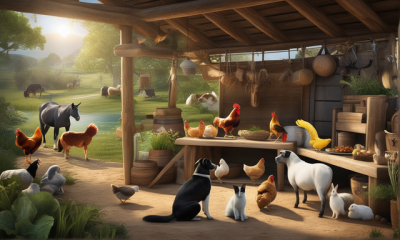
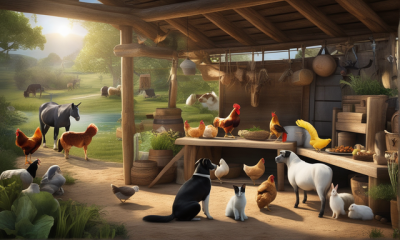 Hey there, off-grid enthusiasts! If you’re contemplating which furry (or feathery) friend to bring into your self-sufficient haven, you’re in the right spot. Picking the perfect off-grid companion can be as crucial as deciding between solar or wind power. Let’s explore the best pets that sync seamlessly with your off-grid lifestyle.
Hey there, off-grid enthusiasts! If you’re contemplating which furry (or feathery) friend to bring into your self-sufficient haven, you’re in the right spot. Picking the perfect off-grid companion can be as crucial as deciding between solar or wind power. Let’s explore the best pets that sync seamlessly with your off-grid lifestyle.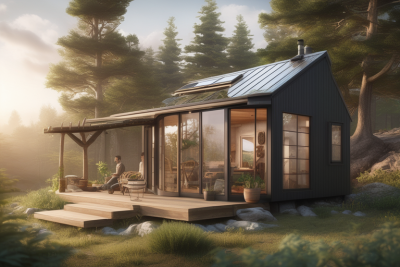
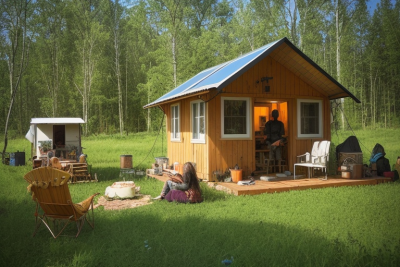
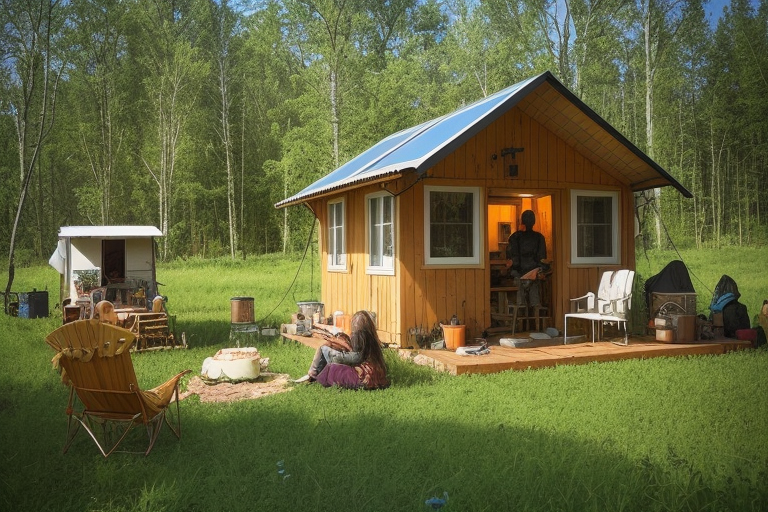 My husband and I have lived 100% off the grid since December 2007, there have been many ups and downs on our journey, and journey it has been, I have never considered “off grid” as a destination but an ongoing journey. Once one challenge has been overcome, there are always more challenges to look forward to, hint: challenges are not negative.
My husband and I have lived 100% off the grid since December 2007, there have been many ups and downs on our journey, and journey it has been, I have never considered “off grid” as a destination but an ongoing journey. Once one challenge has been overcome, there are always more challenges to look forward to, hint: challenges are not negative.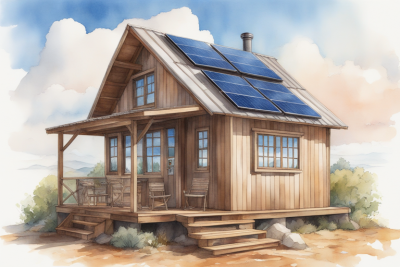
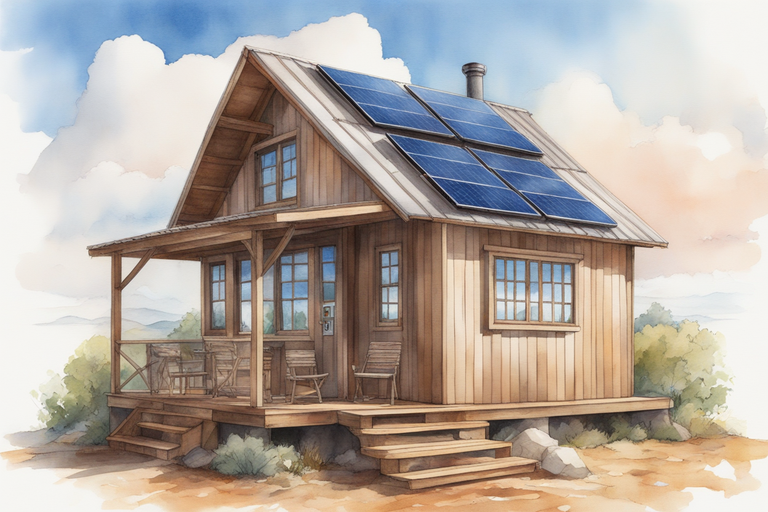 In a world dominated by technology and constant connectivity, the idea of living off the grid might sound like a radical departure from the norm. However, there’s a growing movement of individuals and families who are choosing to embrace a simpler, more self-sufficient lifestyle by disconnecting from the traditional grid. In this blog post, we’ll explore the compelling reasons why you should consider living off the grid.
In a world dominated by technology and constant connectivity, the idea of living off the grid might sound like a radical departure from the norm. However, there’s a growing movement of individuals and families who are choosing to embrace a simpler, more self-sufficient lifestyle by disconnecting from the traditional grid. In this blog post, we’ll explore the compelling reasons why you should consider living off the grid.
 I appreciate today’s short attention span theater, I have a lot to say about kefir. If you want the short version, scroll down, you’ll see it. ?
I appreciate today’s short attention span theater, I have a lot to say about kefir. If you want the short version, scroll down, you’ll see it. ?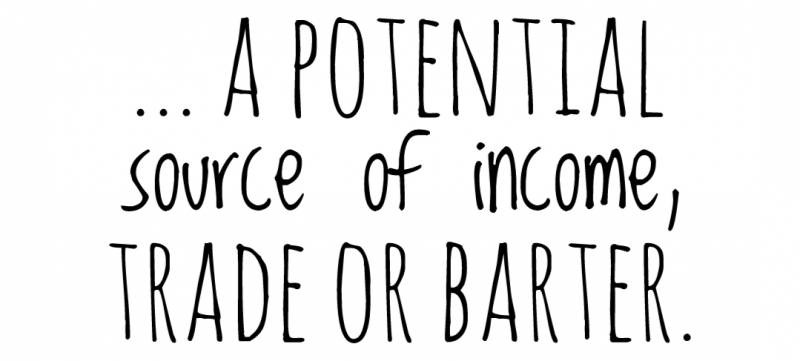 This is something I absolutely believe we need to get back to doing, being more self sufficient, being able to grow and preserve our own food, being able to propagate our own health products/produce, not only for our own personal use, but something that can be shared with family, friends, neighbors… as well as a potential source of income, trade or barter.…
This is something I absolutely believe we need to get back to doing, being more self sufficient, being able to grow and preserve our own food, being able to propagate our own health products/produce, not only for our own personal use, but something that can be shared with family, friends, neighbors… as well as a potential source of income, trade or barter.…